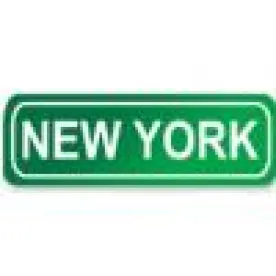On August 12, 2019, Governor Andrew Cuomo signed into law S.6577, a bill implementing a series of sweeping changes to the New York State Human Rights Law (“NYSHRL”). As we previously reported, S.6577 provides for a number of notable updates to the NYSHRL designed to strengthen state protection for victims of sexual harassment. However, the signing of S.6577 also implements a series of changes that stand to significantly impact employers with respect to all claims of employment discrimination, not just sexual harassment. This post summarizes key changes to the NYSHRL created by S.6577, along with deadlines for employer compliance.
Mandatory Liberal Construction for NYSHRL
Effective Date: August 12, 2019
In an attempt to align the NYSHRL and New York City Human Rights Law (“NYCHRL”), S.6577 requires courts to construe the NYSHRL, like its city-law counterpart, “liberally for the accomplishment of the remedial purposes thereof, regardless of whether federal civil rights laws including those laws with provisions worded comparably to the provisions of [the NYSHRL] have been so construed.” This construction will immediately apply to all claims filed after Governor Cuomo signed S.6577 into law.
Required Distribution of Anti-Sexual Harassment Policies and Training
Effective Date: August 12, 2019
Under the NYSHRL, employers must conduct mandatory annual sexual harassment training. S.6577 amends this requirement to provide, at the time of hire and during each annual training session, a “a notice containing [the] employer’s sexual harassment prevention policy and the information presented at such employer’s sexual harassment prevention training program.” The notice must be both in English and the primary language identified by each employee. The Commissioner of Labor has been instructed to prepare and distribute a model notice.
Non-Disclosure Provisions in Settlement Agreements Restricted
Effective Date: October 11, 2019
As a result of previous changes to the NYSHRL, New York employers were prohibited from including a non-disclosure provision in settlement agreements covering sexual harassment claims unless the claimant specifically agreed that the provision was her preference, and was given 21 days to consider the provision and 7 days to revoke consent. As of October 11, 2019, this restriction will apply to all claims of “discrimination, in violation of laws prohibiting discrimination, including, but not limited to, [the NYSHRL].” New York employers must take the following steps to include a non-disclosure provision in any settlement agreement related to claims of discrimination after October 11, 2019:
-
The non-disclosure provision must be executed in two parts. The first part must acknowledge that it is the employee’s preference to enter such agreement and that the employee is being given 21 days to consider the agreement and 7 days to revoke consent after the 21-day period has expired. The second part must be executed after the 21-day period.
-
The non-disclosure provision must be provided in writing to all parties and “in plain English, and, if applicable, the primary language of the complainant.”
-
Any non-disclosure provision will be void and unenforceable if it prohibits or restricts a complainant from: (i) initiating, testifying, assisting, complying with a subpoena, or participating in any manner with an investigation conducted by the appropriate local, state, or federal agency; or (ii) filing or disclosing any facts necessary to receive unemployment insurance, Medicaid, or other public benefits to which the complainant is entitled.”
In addition, after January 1, 2020, any contract or agreement between an employer and employee that prevents the disclosure of “factual information related to any future claim of discrimination” is void and unenforceable unless the agreement “notifies the employee or potential employee that it does not prohibit him or her from speaking with law enforcement, the equal employment opportunity commission, the state division of human rights, a local commission on human rights, or an attorney retained by the employee or potential employee.”
Mandatory Arbitration Clauses for Discrimination Claims Banned
Effective Date: October 11, 2019
Reforms to the NYSHRL in April 2018 rendered void any agreements requiring the submission of sexual harassment claims to mandatory binding arbitration. S.6577 expands this provision to prohibit the submission of all discrimination claims to mandatory binding arbitration. However, whether this section of S.6577 is ultimately enforceable remains to be seen. On June 26, 2019, Judge Denise Cote of the United States District Court for the Southern District of New York held that the NYSHRL’s proscription of mandatory arbitration clauses for sexual harassment claims was inconsistent with the Federal Arbitration Act and accordingly invalid. Only time and judicial review will determine whether S.6577’s ban on mandatory arbitration agreements for discrimination claims will survive.
Lower Standard for Proving Discriminatory Harassment
Effective Date: October 11, 2019
S.6577 changes the NYSHRL’s requirement regarding what an employee must show to prove discriminatory harassment. Previously, employees were required to show that the complained-of harassment was so “severe and pervasive” as to alter the conditions of employment. For claims arising after October 11, 2019, however, employees must only show that an employer subjected them to “inferior terms, conditions or privileges of employment because of the individual’s membership in one or more [] protected categories.” This standard aligns with the standard for evaluating harassment claims under the liberal NYCHRL, under which employees may establish discriminatory harassment by showing that they were “treated less well” than other employees by virtue of their membership in a protected category.
Faragher-Ellerth Defense Eliminated
Effective Date: October 11, 2019
S.6577 eliminates employers’ ability to use the so-called Faragher-Ellerthaffirmative defense established in the United States Supreme Court’s decisions in Faragher v. City of Boca Raton, 524 U.S. 775 (1998) and Burlington Industries, Inc. v. Ellerth, 524 U.S. 742 (1998) against NYSHRL claims. The Faragher-Ellerth defense permits employers to avoid liability for discrimination or harassment by demonstrating that: (i) the employer exercised reasonable care to prevent and correct harassment in the workplace, and (ii) the complainant unreasonably failed to take advantage of the preventive or corrective opportunities that the employer provided or to avoid harm otherwise. The statutory elimination of this defense further aligns the NYSHRL with the NYCHRL, as the New York Court of Appeals rejected the applicability of Faragher-Ellerth defense to NYCHRL claims in 2010.
Prevailing Plaintiffs May Recover Punitive Damages and Attorneys’ Fees
Effective Date: October 11, 2019
S.6577 amends the NYSHRL to allow prevailing plaintiffs in a court action, along with prevailing complainants before the New York State Division of Human Rights, to recover both punitive damages and attorneys’ fees in connection with a claim of unlawful discrimination under the statute. The standard for establishing punitive damages under the NYSHRL has yet to be established by reviewing courts in light of the recent change in the law. However, under the NYCHRL, punitive damages may be awarded upon a finding that an employer has engaged in discrimination with “willful or wanton negligence, or recklessness, or where there is a ‘conscious disregard of the rights of others or conduct so reckless as to amount to such disregard.’”
Unlawful Discrimination Against Non-Employee Service Providers Prohibited
Effective Date: October 11, 2019
In April 2018, the New York legislature expanded the scope of the NYSHRL to protect non-employee service providers, including independent contractors, vendors and consultants, against sexual harassment. S.6577 further expands the NYSHRL to protect non-employee service providers against all unlawful discrimination.
All Employers Subject to NYSHRL Regardless of Size
Effective Date: February 8, 2020
The NYSHRL previously only applied to New York employers with four or more employees. However, as of February 8, 2020, the law will apply to all New York employers, regardless of size.
Statute of Limitations to Bring Sexual Harassment Claims Before New York State Division of Human Rights Extended
Effective Date: August 12, 2020
Prior to S.6577’s enactment, complainants had one year to bring sexual harassment claims before the New York State Division of Human Rights (“NYSDHR”). S.6577 extends this statute of limitations to three years, the same statute of limitations for bringing NYSHRL sexual harassment claims in court. Other discrimination and harassment claims remain subject to the one-year statute of limitations.
Employers should understand and be prepared for the significant changes to the NYSHRL enacted by S.6577 and ensure compliance by all relevant deadlines. We will continue to monitor the impact of this legislation and provide additional information as it becomes available.



 />i
/>i

